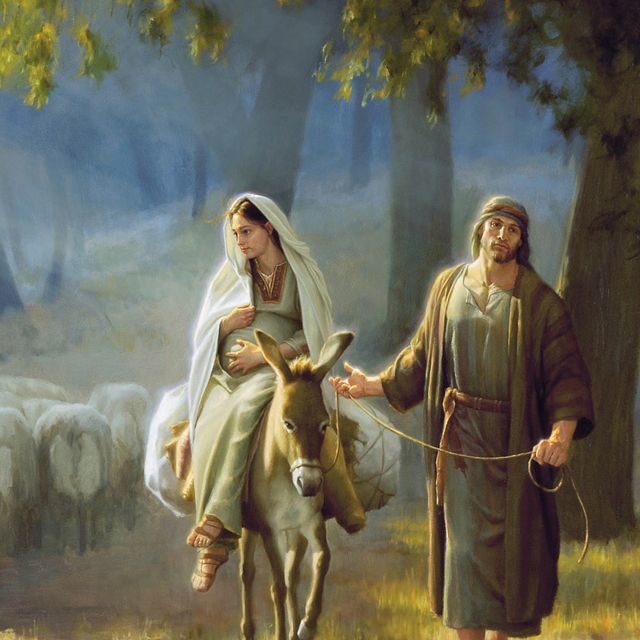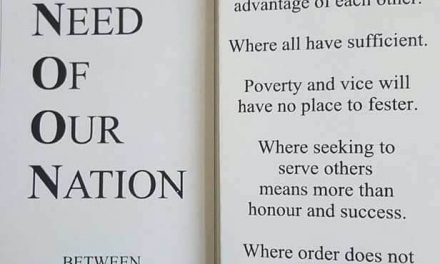The Fourth Sunday of Advent is not just the last Sunday in the season of preparation for celebrating the first advent of Jesus (coming). It is also in anticipating the Second Advent of Jesus (second coming) especially in ‘a truly secular society, in which men and women live their lives beneath empty heavens and expect to be recycled rather than resurrected, there is no solid moral foundation for good and evil.’ In an age when ‘Christianity fades further and further into our civilization’s rear-view mirror, many intelligent atheists are beginning to realise that the Enlightenment may have only achieved success because it wielded influence on a Christian culture.’ Pope Francis in his traditional Christmas greeting to the Roman Curis, the Vatican’s top administrative body warned about the church losing its influence. The call by Pope to church leaders for a “change of mentality” could find a relief in the Gospel reading of today written from Joseph’s perspective which ‘is intended to address the congregation and nation as people who are bound together for long-term life and witness (Matt 1:18-25). The life of Joseph resonate with the Pope’s suggestion on new method needed to help “reposition our ways of thinking and our attitudes.”
Matthew presents Joseph, the earthly father of Jesus as a model for all who encounter the message of Jesus through the church. Mary and Joseph were betrothed, not yet fully married. There are three steps in a Jewish marriage, namely; the two families agreed to the union; a public announcement was made, all summed up as betrothal, similar to engagement today, even though sexual relations were not yet permitted. Lastly, the couple married and began living together. Mary’s pregnancy catches Joseph by surprise and her apparent unfaithfulness carried a severe social stigma and she could be stoned to death (Deut 22: 23, 24).
Living Advent invites us to do as Joseph did, ‘to believe the message is of God and to become part of its movement. Just as Joseph fashioned himself to the message and movement of Jesus, we are expected to follow in Joseph’s footstep. We are betrothed, not yet married until His Second Coming, not intercourse with the world standard. Enough of seeking to avoid public humiliation while also fulfilling the law.’ Living Advent points us to Joseph’s example of balancing righteousness and love. Righteousness is not righteousness without love just as love is not love without righteousness. Joseph was “a righteous man.” He was in right standing that is, doing the right things towards both God and other people.
Virgin birth is very important to Christian faith for the fact that Jesus Christ, God’s ONLY Begotten Son, had to be free from the sinful nature passed on to all other human beings by Adam. Jesus, born both fully human and fully divine lived as a man thereby understands our experiences and struggles (Heb 4:15,16), and also as God, has the power and authority to deliver us from sin (Col 2:13-15). Just as Joseph was faced with difficult choice after discovering that Mary was pregnant, many churches and leadership are facing difficulties today because of the increasing immoralities and unfaithfulness to God’s Word. Joseph unlike the Scribes and the Pharisees with the woman caught in the act of adultery purposed to do the right thing as a model of righteousness and holiness and also as an example of sensitivity and love (John 8, Matt 1:19). To reposition the church and leadership, there is need to have ‘a balance of both holiness, and of love; of godly standards, and yet sensitivity and concern for people.’ Living Advent is about stern principle, not allowing righteous standard that God has given in His word to slip off or hold them coldly. Living Advent is about self discipline, discretion, and keeping the balance: ‘to both do the right thing; to keep the standards of holiness — and yet at the same time, to still be sensitive and care about people.’ To be a genuine church, and reflecting on the life of Joseph, Living Advent invites us to retain the standards of sound words and of holiness that God has given us in His word (2Tim 1:13). In such a time when the society is increasingly dragging the church down to its level morally, it is possible for leaders to cave in hence, like Joseph, we need God’s guidance to make the best decision and make it in the right way. Obedience is better than caving in to the compromised views of our world. Mary’s humble attitude toward the unexpected child was not with pride hence, Joseph’s respect for Mary’s character and the story she told him summons us as God’s people to always say the truth bearing in mind that whoever confesses his or her sins will receive mercy.










Recent Comments